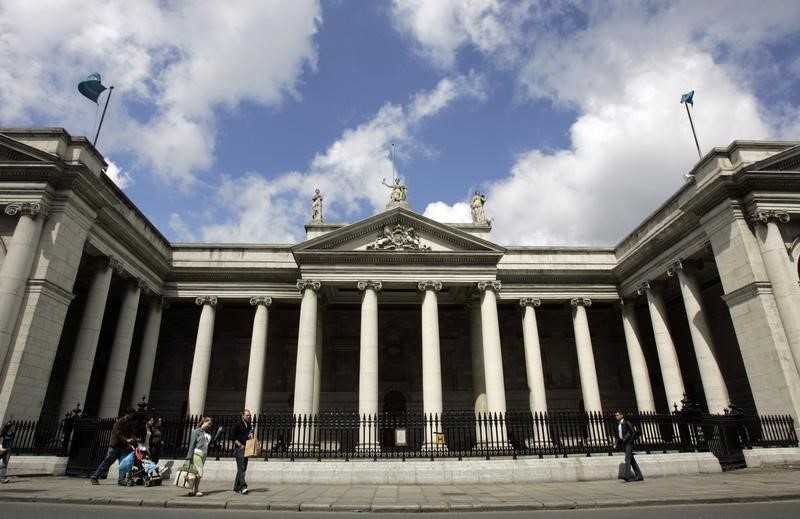By Padraic Halpin
DUBLIN (Reuters) - Ireland's budget deficit is likely to have fallen by less than expected in 2014, a finance ministry official said on Monday, as a jump in year-end government spending prompted some concern that fiscal discipline may be slipping.
Dublin emerged from an EU/IMF bailout just over a year ago after a seven-year austerity drive, which has helped restore investor confidence but took some 30 billion euros (23 billion pounds), or about 20 percent of annual output, out of the economy.
Ireland's deficit fell to around 4 percent of gross domestic product at the end of 2014, John Palmer, a principal officer at the department of finance said, down from 7.2 percent a year earlier and comfortably beating an original target of 5.1 percent. But it was higher than the most recent forecast of 3.7 percent in October.
Data on Monday showed that tax revenues rose 9 percent in 2014 to end the year 3.1 percent above target but government spending, while falling, was 2 percent above official forecasts, primarily due to a 680 million euro additional spending package approved for the health department in December.
"While the positive momentum behind tax revenues provides a favourable tailwind for 2015, there are signs that the iron grip on spending seen during the Troika years is being relaxed," said Investec Ireland chief economist Philip O'Sullivan. The Troika refers to the trio of international lenders that funded Ireland's bailout.
"With a general election less than 15 months away, we are mindful of the risk that the government goes back to the bad habits of previous administrations of trying to spend its way to popularity."
Supplementary spending was also approved to pay police, fund new capital projects, fleet replacement for public transport and storm repairs, officials at the finance department said.
Palmer said the department saw no reason to revise its forecast for a deficit of 2.7 percent of GDP at the end of 2015.
The sharp rise in tax revenue last year together with quickly recovering economic growth allowed the government to cut the income tax rate from the start of 2015 for the first time in seven years.
Defending the additional spending, Finance Minister Michael Noonan said the rise in tax revenue provided "tangible evidence" that he will probably be able to cut income taxes again next year, as he has previously suggested.

"What the good figures do is allow the government to repair a lot of the damage that was done when the country became insolvent, so we can give extra money to the essential services like health and justice and education," Noonan told national broadcaster RTE.
(Editing by Alison Williams and Susan Fenton)